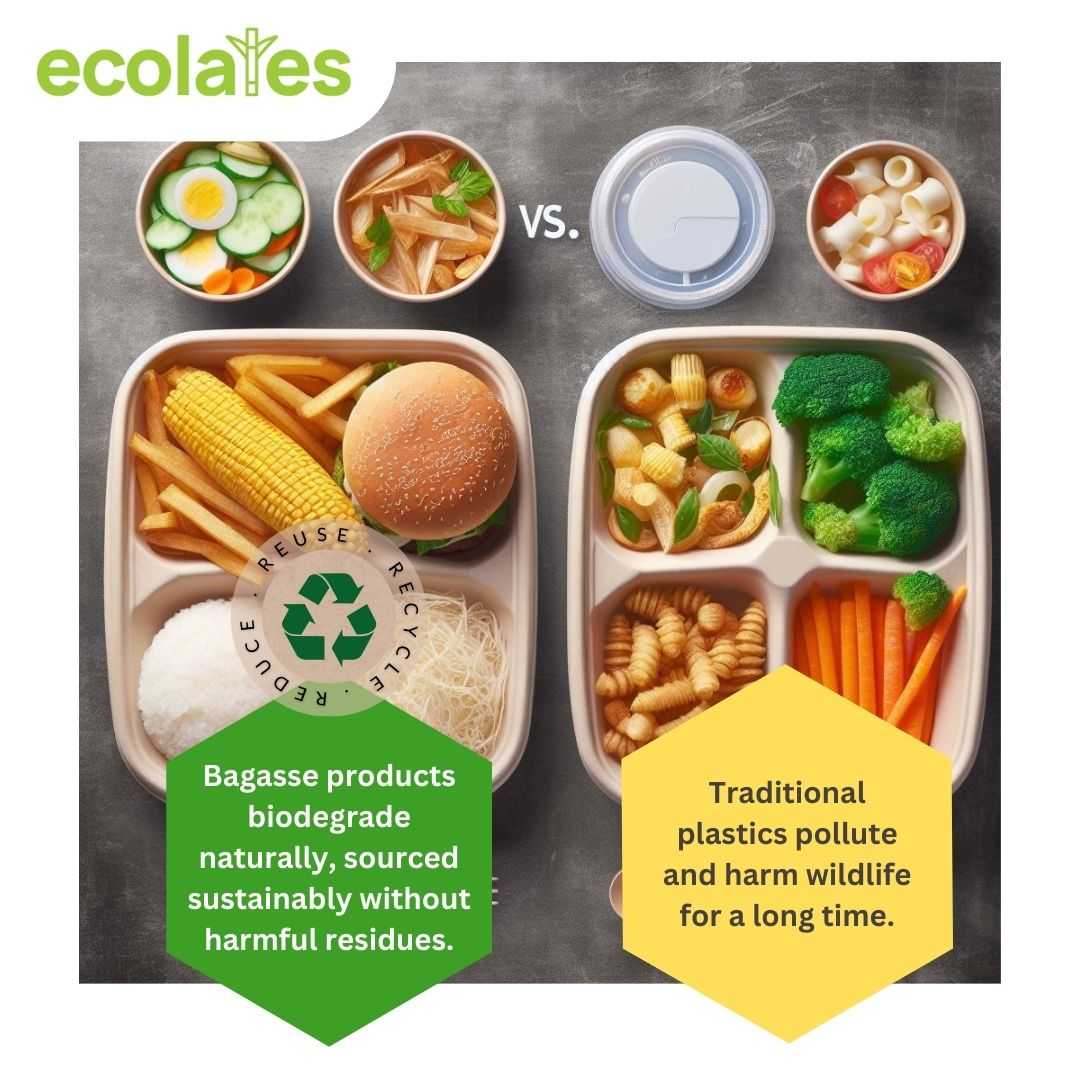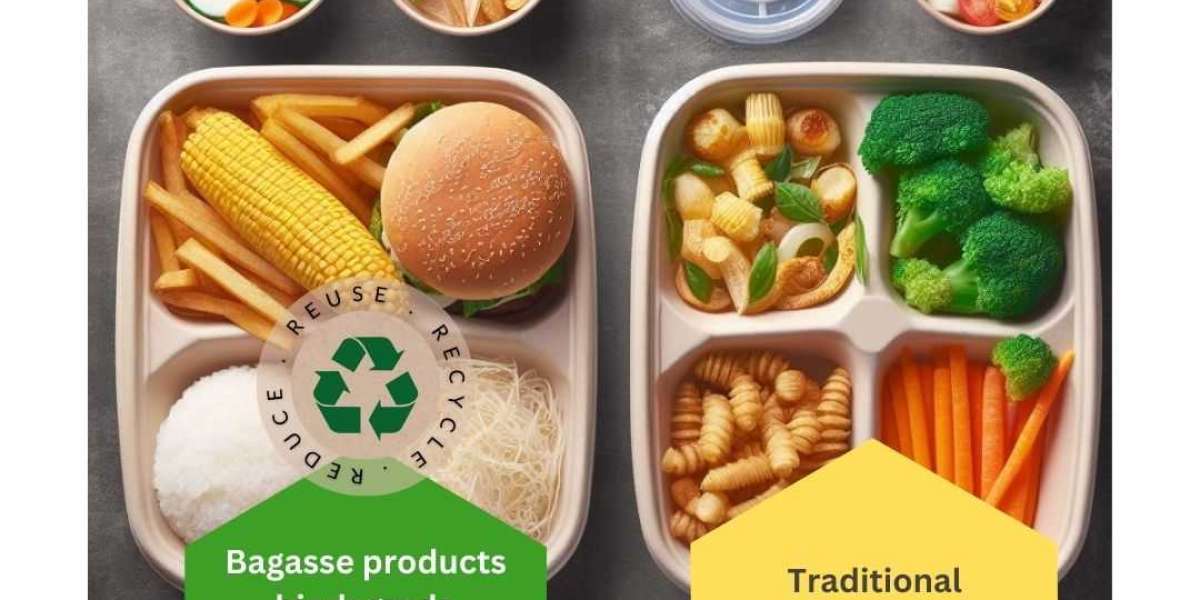
In an era where environmental consciousness is at the forefront of consumer and industrial decision-making, the choice between traditional plastics and biodegradable alternatives is becoming increasingly vital. As we aim to reduce our carbon footprint and mitigate the impact of single-use materials on our planet, companies like Ecolates are leading the charge with innovative solutions like bagasse-based disposable food containers.
Ecolates, is a pioneering manufacturer in India, offering a range of biodegradable plates, bowls, and containers made from sugarcane bagasse. Their products cater to a diverse clientele including eco-conscious consumers, the food service industry, event planners, offices, educational institutions, government agencies, retailers, and non-profit organizations.
Bagasse, the fibrous residue left behind after extracting juice from sugarcane, serves as a sustainable alternative to traditional plastics. Let's delve into a comparison between bagasse and plastics in the context of eco-friendly disposable food containers, shedding light on their environmental impact, functionality, and overall suitability.
Environmental Impact:
- Bagasse: Derived from a renewable resource, bagasse products are compostable and biodegradable, making them an eco-friendly choice. They break down naturally, returning to the earth without leaving harmful residues.
- Plastics: Traditional plastics, on the other hand, pose a significant threat to the environment due to their non-biodegradable nature. They contribute to pollution, littering landfills, oceans, and natural habitats, persisting for centuries and harming wildlife.
Functionality:
- Bagasse: Ecolates’ bagasse-based containers offer sturdy and durable alternatives to conventional plastic containers. They are microwave-safe and can withstand a wide range of temperatures, making them suitable for hot and cold food items.
- Plastics: While plastics are widely used for their versatility and lightweight nature, they often lack the sturdiness and heat resistance of bagasse, posing challenges for certain food applications.
Suitability for Various Applications:
- Bagasse: Ecolates’ biodegradable containers are ideal for diverse settings including food service establishments, events, offices, schools, and households. They align with sustainability goals and cater to the growing demand for eco-friendly alternatives.
- Plastics: Despite their widespread use, the environmental repercussions of plastic containers are prompting businesses and consumers to seek greener alternatives like bagasse.
In conclusion, the comparison between bagasse and plastics underscores the importance of choosing sustainable alternatives in disposable food containers. Ecolates stands as a beacon of innovation and environmental stewardship, offering biodegradable products that align with the values of eco-conscious consumers and industries.
To explore Ecolates’ range of biodegradable plates, bowls, and containers, join the movement towards a greener, more sustainable future. Make the switch to eco-friendly disposable food containers today, and together, let's pave the way for a healthier planet.







